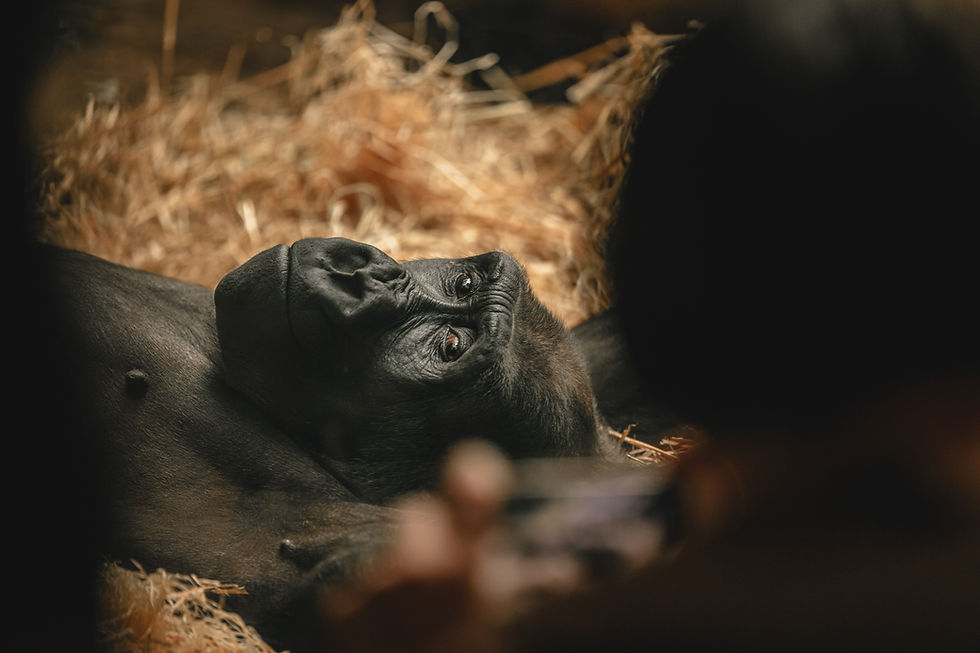How Much Rest and Recovery Does My Child Need Between Wrestling Practices and Tournaments?
- Keep Kids Wrestling Non-Profit
- Apr 15
- 3 min read
Wrestling is one of the most demanding youth sports, both physically and mentally. With practices that challenge endurance, strength, and technique—and tournaments that can last all day—it’s natural for parents to wonder:“How much rest and recovery does my child really need?”
The truth is, rest is just as important as training. Without proper recovery, young wrestlers risk injury, burnout, and stalled progress. On the flip side, with the right balance of rest, nutrition, and sleep, your child can improve faster, feel better, and enjoy the sport more.
In this blog, we’ll explore how much rest young wrestlers need, what recovery should look like between practices and tournaments, and how you can support your child’s physical and mental well-being throughout the season.
Why Rest and Recovery Matter in Wrestling

Wrestling is a full-body sport that challenges athletes in unique ways. Every practice includes drilling, conditioning, live sparring, and technique repetition. Tournaments can involve multiple matches in a single day, often with short breaks in between. This kind of effort breaks down muscle tissue and drains the nervous system.
Rest and recovery are how the body rebuilds itself.Without proper rest:
Muscles don’t fully recover
Injuries are more likely
Fatigue builds up over time
Motivation and mental sharpness decline
For young athletes, whose bodies and brains are still developing, rest isn’t a luxury—it’s a necessity.
How Much Rest Is Needed After Practice?
For most youth wrestlers, especially beginners or elementary-aged kids, practicing 2–3 times per week is ideal. These practices should be followed by:
At least one day of rest or light activity in between hard sessions
Early bedtimes and 9–10 hours of sleep per night
Healthy meals and plenty of hydration to support recovery
Middle school and high school wrestlers may practice more frequently (4–6 days a week), but they still need:
One full rest day per week
Sleep and nutrition tailored to their energy output
Occasional light or recovery-focused days to prevent overtraining
If your child seems unusually tired, sore, irritable, or starts losing interest in the sport, it might be a sign they need a break.
How Much Recovery Is Needed After a Tournament?

Tournaments are exhausting. Even if your child only wrestles a few matches, the emotional stress, adrenaline, and hours spent in the gym can take a toll.
After a tournament, your child should have:
A full day off, especially if they had multiple matches
Plenty of sleep that night and the following
Gentle movement or stretching the next day to stay loose
Hydration and nutrient-rich meals to replenish energy
In some cases, it’s okay to take two days off—especially if the tournament was physically or emotionally draining. This doesn’t slow down progress. In fact, it prevents injury and allows the body to rebuild stronger.
Signs Your Child Needs More Rest
Every child is different. Some bounce back quickly, while others need more time. Here are some signs that your child may be overtrained or not recovering well:
Constant soreness or muscle tightness
Trouble sleeping or feeling restless at night
Loss of motivation to go to practice
More frequent illness or getting run down
Slower reaction times or poor focus
Mood swings or emotional outbursts
If you see any of these signs, it’s okay to take a step back. Missing a day of practice to recover is better than missing a season due to injury or burnout.
Active Recovery Days Are Just As Valuable

Recovery doesn’t always mean sitting still. Light movement on rest days—called active recovery—can help the body recover faster.
Good active recovery options include:
Walking or bike riding
Light swimming or yoga
Playing a non-contact sport for fun
Stretching or using foam rollers at home
The goal is to keep the body moving without overloading it, helping muscles repair and blood flow return to normal.
Mental Recovery Matters Too
Wrestling isn’t just physically exhausting—it’s emotionally demanding, especially after tough losses or long days. Just as the body needs to rest, so does the mind.
Encourage your child to:
Do something relaxing and unrelated to wrestling
Take breaks from thinking or talking about competition
Focus on hobbies, friends, or downtime at home
Talk about their feelings if they’re discouraged or frustrated
A healthy mindset is part of a healthy athlete. Don’t underestimate the importance of mental recovery between events.
Recovery Fuels Progress
Helping your child succeed in wrestling isn’t just about pushing harder—it’s about finding the right rhythm of effort and rest. A well-rested wrestler is a better learner, a faster mover, and a more confident competitor.
So when in doubt, let your child take a break, stretch out, sleep in, or laugh with friends. Recovery is not time wasted—it’s fuel for the next step forward. Support your wrestler’s rest, and you’ll be supporting their long-term growth—on and off the mat.



Comentários